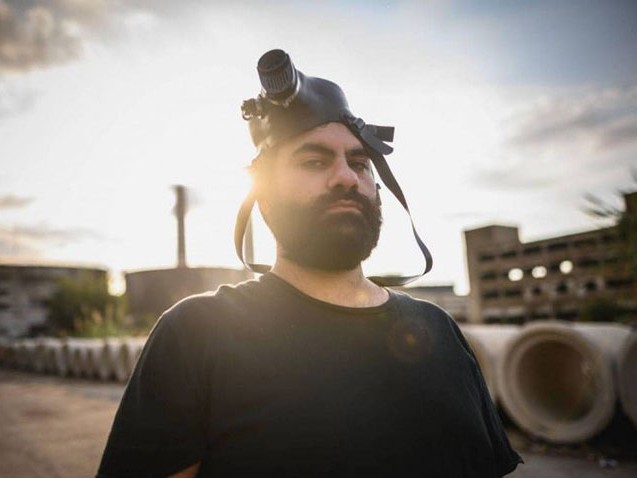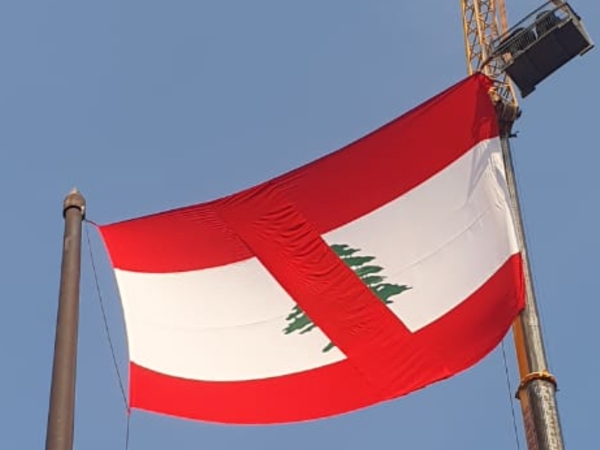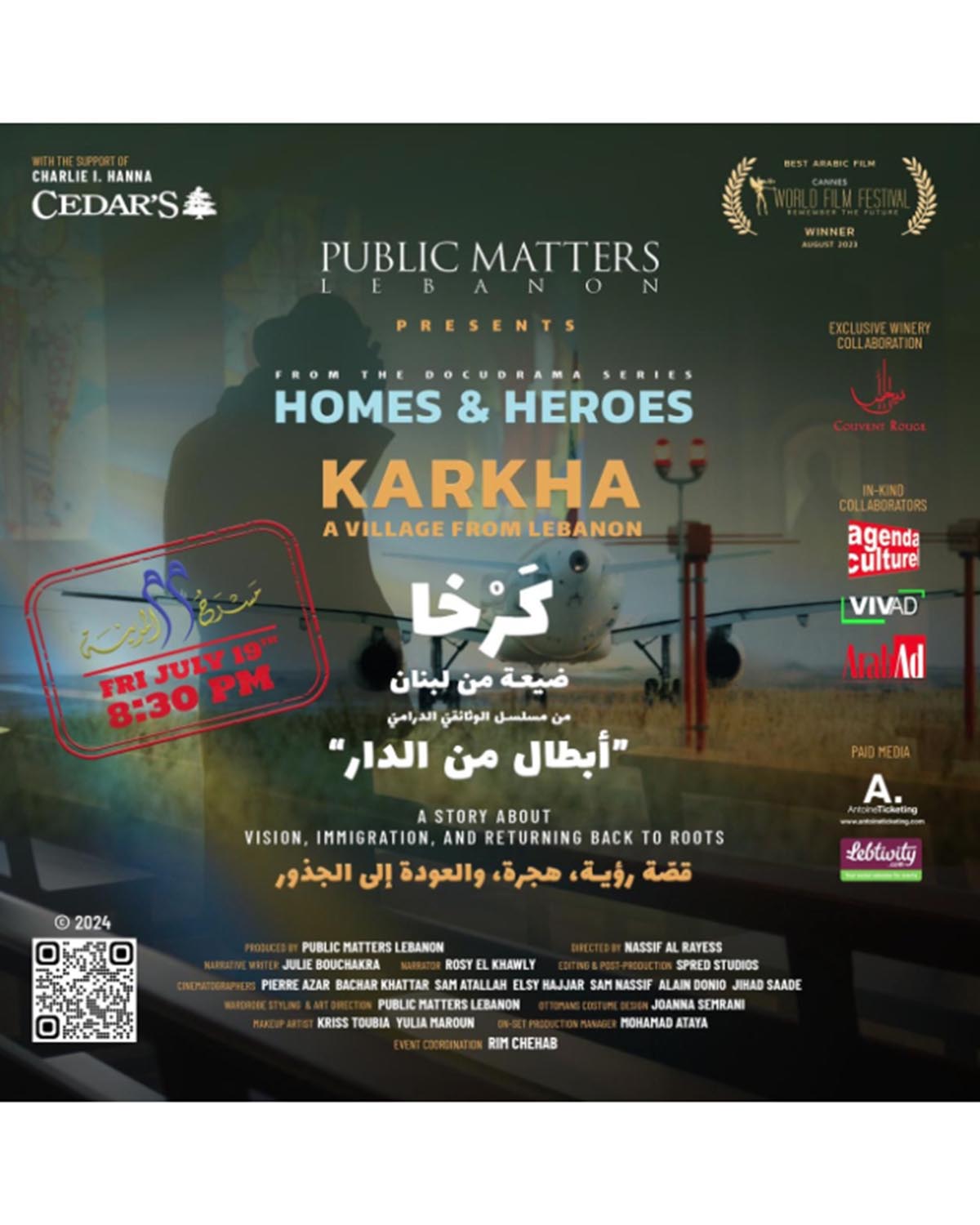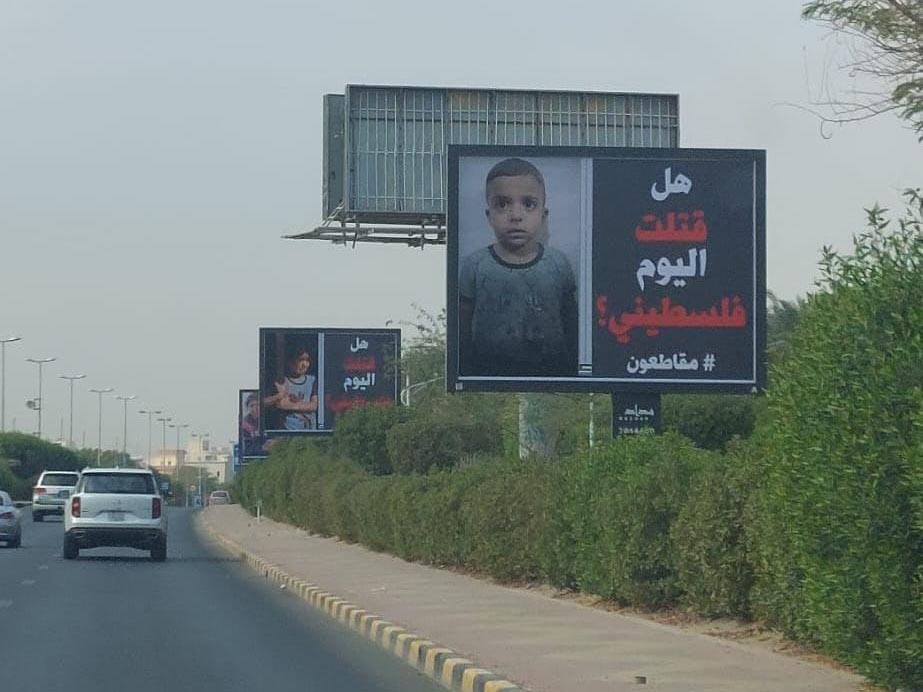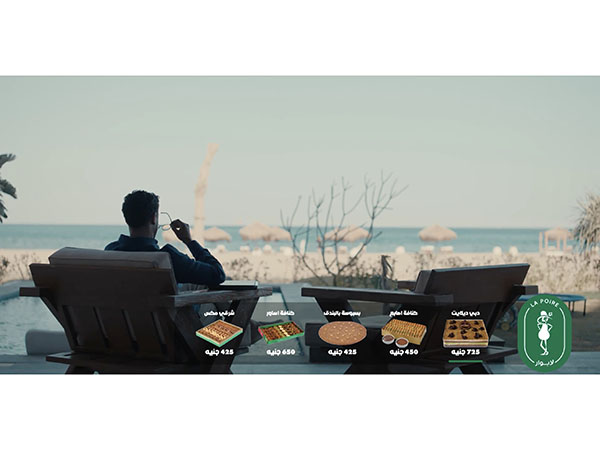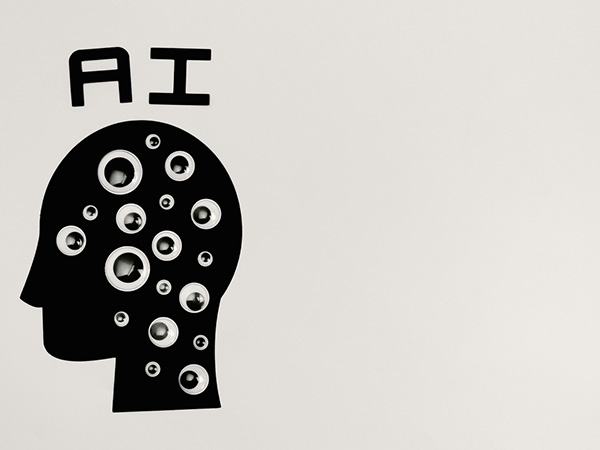News - Digital/Tech
Gino Raidy: 'Instagram has been awesome and to me the role it’s playing is undeniable'
by Christina Fakhry
January 13, 2020

Tell us briefly about your activist background. How did you first develop an interest in politics and in what ways did you hone it across time?
When it comes to my activist background, I really hate politics and never wanted to [be involved in it], it was never my dream. But it all started at the time of the Syrian occupation, I went down to March 14 when I was like 14-15. That was the first time I felt like doing something and I was in that line of thinking back at that age. But then when I saw how they handled the elections, when they sat together with Hezbollah, Hariri and people that were already in power in an attempt to win the elections, it felt like being lied to by March 14 and that is when I became closer to March 8 [FPM, Marada Movement…] and we even closed downtown with them back then when I was around 16-17. Then came a decisive moment when I heard a political song with the line “nehna rjalak lal mawt” [we are your men until death] and I was like “no, this does not represent me at all” so that was when I left after trying everything. But it was during my AUB days that I started to think about the liberal ideas we fight for today like secular country and gender equality. Ever since my first couple years at AUB when I was 18-19, I’ve been advocating for causes I think are important. I really hate injustice even when it does not affect me directly, if I feel someone is suffering injustice for whatever reason, I get angry. This is why for instance we care about issues like civil marriage for women who have no choice to go spend money on a trip to Cyprus to get married legally. Like you have women in areas like Akkar and Nabatieh who do not have a choice and whose children are being taken from them at the tender age of two in certain situations. Such cases are happening every day.
Digital activism, and Instagram activism in particular, is witnessing an unprecedented surge in Lebanon following the October 17 uprising and has played a key role in mobilizing the community. As someone who has been actively contributing content on the topic throughout the past few weeks, how do you evaluate the impact of this trend on Lebanese citizens/public opinion?
Using online platforms honestly came by default without me even thinking about it. On the second week, I sat down thinking about what we are doing on Instagram: this is something new no one was doing before. Why did I like Instagram the most? Because it allows me to spread information that is also visual and not only text-based. Don’t forget that the ‘sulta’ (power) have online armies that are mightily strong so anything you write in text can very easily be countered by them [through bots] and people get lost as a result but when you can post a 15-second story and tag me and a few other accounts for us to repost, everyone can know everything before any of the TV stations know about what is happening or talk about it. So our speed has been essential. Another thing that made me happy is that people now fact-check. Many now know how to use Google’s reverse image search for instance.
What has been your preferred way of sharing your thoughts on the uprising on social media? And how did it develop into a consistent habit?
For me, I never share something unless I am there or someone I know and trust is, or else more than one source confirmed it. Thankfully in the past 50-60 days, only very minor mistakes happened like thinking a convoy is for one minister when it belonged to another, stuff like that, but nothing we shared was twisted or fabricated. Instagram has been awesome and to me the role it’s playing is undeniable. When we say the movement is leaderless, people think we are lying and there must be leaders somewhere but in fact between WhatsApp groups and Telegram and Instagram, finding like-minded groups and deciding on what needs to be done has become easier than ever. For example, on December 10 when arrests happened among protesters, it was very important for us to go to the people behind the arrests so we went to the houses of Mount Lebanon Prosecutor Judge Ghada Aoun and Interior Minister Raya El Hassan. Others directed their focus on that day towards past public works ministers they held responsible for the floods that had occurred in the previous couple days so they chose to go to their houses and then got beaten up when they reached Amal ministers, which mobilized us in turn to think of what we can do about that too.
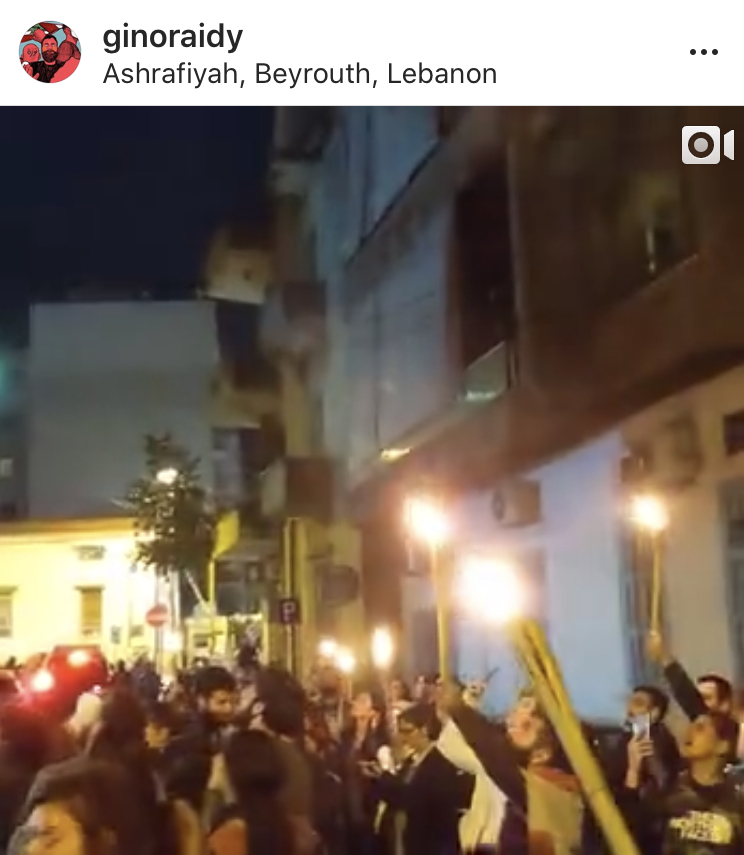
“Between WhatsApp groups and Telegram and Instagram, finding like-minded groups and deciding on what needs to be done has become easier than ever.”
Are you sticking to your usual posting habits for the near future or do you plan to you’re your established online presence to new grounds?
When it comes to posting habits, Instagram has always been personal, so I share whatever I want as opposed to having a specific format or series to stick to like some fellow influencers. It’s been really funny how people see us as one group like me, Ghayd [@el_3ama], Oleksandra [@polleksandra], everyone… For me, I’ve been detained many times, I’ve been walking this line for nine years of my life almost doing nothing else so to me, I try as much as possible to explain to people: if I know something is not true, I always try to tell them but we’re not like a unified front posting the same stuff at all.
Based on anecdotal evidence/follower feedback, how do you think your posts/stories have impacted the community?
When it comes to impact, a lot of people who were once ‘blasé’ and disinterested in what’s happening follow these accounts already. If we could have made them feel the anger or the urgency of doing something because we cannot keep living like that, this impact has been beautiful. Honestly I think the biggest impact I have had was with Lebanese expats who were boiling up because they are not with us and cannot be present here and their news sources are limited due to paywall on some channels, so a lot of them wait for the stories to see what’s happening and understand/formulate an opinion. I am definitely aware of my responsibility from this end.
What is the most positive impact of the Lebanese uprising on the country and its citizens? And where do you see this going next?
A lot of people may be whining about cursing and what not but to me this too has a political purpose. Before, when we used to criticize any of them [politicians], people like Ghada Aoun used to arrest us and leave us in jail for a few days or a week/couple weeks, which is unacceptable so today the fear barrier about the ‘zaim’ [leader] no one can talk about has disappeared and to me this was the biggest achievement so far for the revolution and why thinks will never go back to being the same. One proof of this is that the Energy Minister for the first time in history announce a bidding on state fuel import tender live on air, which still had its flaws, but nonetheless reflects how much those in power are careful now because they know all eyes are on them. The most important thing to me personally is that fear that used to exist before about not being able to talk or that nothing will change is gone. So if people want to do something nowadays, they gather themselves up and do it not like before when they used to be like ‘maybe’, ‘someday’ and things of the sort. In my opinion, this was the most positive impact of this revolution so far and I think it will carry on into the future. And some significant things happened like the cabinet resignation, what is important is that we called their bluff [that of the government and politicians], people got used to it and there is no going back now.
Do you believe there are ethics that social media 'influencers' need to abide by in times of political turmoil?
I would like to emphasize that I never post about something if I am not going to be there in terms of ethics. I would never tell people to go down to a certain spot if I am not there, I’d never do that. If I were to invite people to do something, I would have to believe in it and be there too so that and whatever happens to me happens to them too.
Based on your personal experience, how do you view the future of digital activism in Lebanon and the region?
Things changed because I think people noticed the astroturfing and gaslighting the government is doing through their electronic armies and fake accounts so it’s nice that everyone is organized now and trying to counter that. Based on this observation, I think the future of digital activism is amazing.


